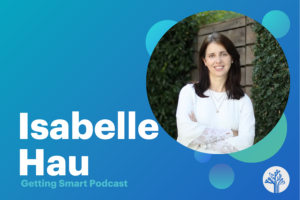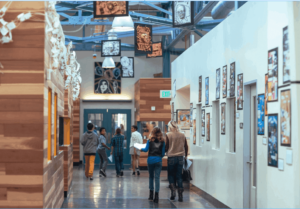Step Off the Direct Path, Service Something Larger Than Yourself

Carol Barash
I was a sophomore at Yale. Though I looked fine on the outside, my life was unraveling. My past came back in flashes–a hand around my throat, a feeling of being crushed, or walking around a corner and someone jumping out. But there is no one physically there.
Against my mother’s objections, I took a year off, lived and worked in a residential treatment program for people who had been hospitalized with severe mental illnesses. I learned many things that year: I learned that I did not want to major in psychology. I taught myself to bake bread. And I organized a Take Back the Night march through the streets of Northampton, Massachusetts.
When you step off the predictable path, everything changes because your point of view changes. A gap-year can be used as a tool to broaden your understanding of what really matters to you. It can be travel, service with programs like AmeriCorps, or Peace Corps (two years), or an internship in something new. Whatever you choose, make it meaningful by making a positive change.
At Story2 I have the opportunity to work with students taking many different paths through high school and college. I am inspired by Gen X, Y and Z’s commitment to making a difference by creating change for themselves and other people.
As the direct path from high school to college to work becomes less normative by the day, more people of all ages build their career and life path based on a wide range of educational options, diverse work and volunteer experiences, and their unique vision for our shared future. Remember that you only need to change one thing. Any step in a direction that you choose for yourself, is the right step.
Here are five examples of students who’ve worked with Story2 and changed their own lives, and the lives of others, by taking on simple projects in the world right around them:
- Romain was studying abroad in Shanghai. He started tutoring local students in English, casually at first to earn some extra money. But he saw a “bigger opportunity” and worked between his school and the local government to create an ongoing tutoring and mentoring program between his college and the nearby middle school.
- So “worn out from high school” that she could not enjoy anything she studied in college, Eliana took a semester off to work at the National Organization for Women. She ran social media, organized archives, and led marches on Capitol Hill. She returned and created her own major at the intersection of politics and performance.
- To “do something small” about what she was studying about the environment, Sarah rode her bike from lower Manhattan to the Bronx High School of Science for half a year, traversing the island she had lived on all her life without noticing the many disparate neighborhoods.
- Joel was the “first person in his family to attend college.” Instead of just banging through pre-med courses on his path to medical school, he triple majored in biology, public health and public policy and took on primary research about the impact of poverty on young people’s health.
- Claudia had a final paper to write for her Poetry of Protest class in 11th grade literature. Instead of a traditional paper, she created a website and blog where she told her own story and encouraged other girls to replace makeup and pleasing others for “more authentic body image.”
And one more story from a previous generation: Marshall Ganz left Harvard a year before graduating in 1964 to join the Mississippi Summer Project. In 1991, after 28 years as an “activist for civil rights and workers’ rights,” he returned to Harvard to complete his BA, MPA and PhD studying social movements. Ganz writes and teaches about the importance of storytelling in galvanizing change and about individuals moving from spectators to actors on a shared stage.
If deep change depended solely on outside intervention it would never happen. -Marshall Ganz
In every example the “words in quotes” were just scripts, generally good things that others had done, until individuals took them on in their own lives. This is the innovative spirit I see at the heart of GenDIY: see a problem, make a change from right where you find yourself. Just do it. Right now.
When you are uncertain what step to take next, change something. Tell a story that reveals your unique experience. Create something new. Be of service to something larger than yourself.
For more on GenDIY, check out:
- AdvancePath Academics: Positive Environments + Flexible, Blended Learning
- The Syllabus We All Should Have Gotten
- GenDIY Profile: Mikaila Akeredolu

Carol Barash, PhD, is founder and CEO of Story2 and author of Write Out Loud. Follow Carol on Twitter, @carolbarash.






0 Comments
Leave a Comment
Your email address will not be published. All fields are required.